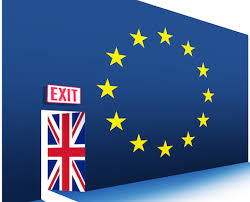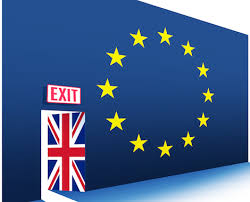
An internal memo prepared by the body responsible for the drafting international tax rules says that the United Kingdom is unlikely to try to lure international investment by becoming a tax haven after it leaves the European Union.
The UK could use its freedom from EU rules to slash corporate tax but the political price would be high, said the head of tax at the Organization for Economic Co-operation and Development, which advises developed nations on policy.
Since the UK voted to leave the bloc some accountants and policy experts have started raising the idea that the country may cut tax on multinational companies' profits, which could also help them avoid tax on profits made elsewhere in the EU.
"The negative impact of the Brexit on UK competitiveness may push the UK to be even more aggressive in its tax offer," the OECD’s head of tax, Pascal Saint-Amans said in the memo, reported the Reuters.
"A further step in that direction would really turn the UK into a tax haven type of economy," he said. There were practical and domestic political barriers to doing this, he added.
Compared to an average among other OECD members of around 25 percent, the UK is already in the process of cutting its corporate tax rate to 17 percent.
The UK has also introduced tax breaks that allow companies pay lower tax rates on some income and no tax on earnings from tax haven subsidiaries as part of its stated aim to be the most competitive Group of 20 major economies on tax.
The OECD said that the UK would need to significantly cut its tax rate or introduce a system of "generous" tax rulings to significantly improve its appeal to businesses.
One-off tax deals – something prohibited by EU law, could be selectively offered to foreign investors once it is outside the EU.
For allegedly giving sweetheart tax deals to companies like iPhone maker Apple and burger chain McDonalds that allowed them to shift profits from other EU nations, legal action against Ireland and Luxembourg is being taken by the European Commission. The countries and companies deny breaking any rules.
Following revelations about the complex tax structures used by big companies like Starbucks and Google, corporate tax avoidance has risen to the top of the political agenda in Britain in recent years.
That may make further tax leniency a hard sell to the British public.
In the memo that was circulated to senior OECD officials, Saint-Amans wrote: “the mood of the people is certainly not about giving more benefits to large MNEs (Multi-National Enterprises), making it a hard move to any new government.”
The pressure on public finances "which may only increase with the negative impact of the Brexit on UK growth" could force the UK not to be able to afford to cut its tax rates much, Saint-Amans also noted.
Small countries with access to larger markets are usually the so-called tax havens. Since the profits which escape tax have almost all been earned overseas, lowering tax rates actually boosts government revenue. But since multinationals earn significant profits in the country and these would otherwise yield taxes, hence cutting taxes costs the UK money.
(Source:www.reuters.com)
The UK could use its freedom from EU rules to slash corporate tax but the political price would be high, said the head of tax at the Organization for Economic Co-operation and Development, which advises developed nations on policy.
Since the UK voted to leave the bloc some accountants and policy experts have started raising the idea that the country may cut tax on multinational companies' profits, which could also help them avoid tax on profits made elsewhere in the EU.
"The negative impact of the Brexit on UK competitiveness may push the UK to be even more aggressive in its tax offer," the OECD’s head of tax, Pascal Saint-Amans said in the memo, reported the Reuters.
"A further step in that direction would really turn the UK into a tax haven type of economy," he said. There were practical and domestic political barriers to doing this, he added.
Compared to an average among other OECD members of around 25 percent, the UK is already in the process of cutting its corporate tax rate to 17 percent.
The UK has also introduced tax breaks that allow companies pay lower tax rates on some income and no tax on earnings from tax haven subsidiaries as part of its stated aim to be the most competitive Group of 20 major economies on tax.
The OECD said that the UK would need to significantly cut its tax rate or introduce a system of "generous" tax rulings to significantly improve its appeal to businesses.
One-off tax deals – something prohibited by EU law, could be selectively offered to foreign investors once it is outside the EU.
For allegedly giving sweetheart tax deals to companies like iPhone maker Apple and burger chain McDonalds that allowed them to shift profits from other EU nations, legal action against Ireland and Luxembourg is being taken by the European Commission. The countries and companies deny breaking any rules.
Following revelations about the complex tax structures used by big companies like Starbucks and Google, corporate tax avoidance has risen to the top of the political agenda in Britain in recent years.
That may make further tax leniency a hard sell to the British public.
In the memo that was circulated to senior OECD officials, Saint-Amans wrote: “the mood of the people is certainly not about giving more benefits to large MNEs (Multi-National Enterprises), making it a hard move to any new government.”
The pressure on public finances "which may only increase with the negative impact of the Brexit on UK growth" could force the UK not to be able to afford to cut its tax rates much, Saint-Amans also noted.
Small countries with access to larger markets are usually the so-called tax havens. Since the profits which escape tax have almost all been earned overseas, lowering tax rates actually boosts government revenue. But since multinationals earn significant profits in the country and these would otherwise yield taxes, hence cutting taxes costs the UK money.
(Source:www.reuters.com)





